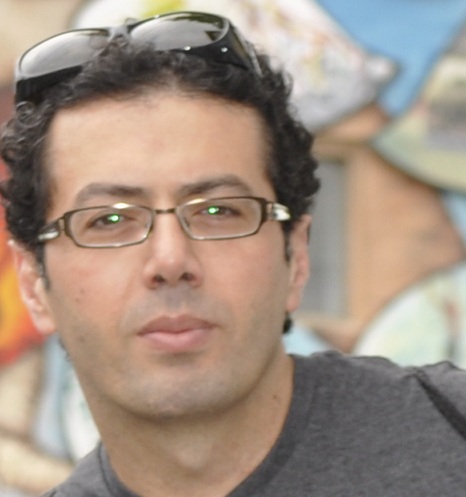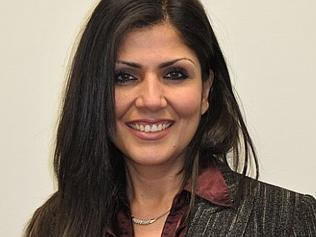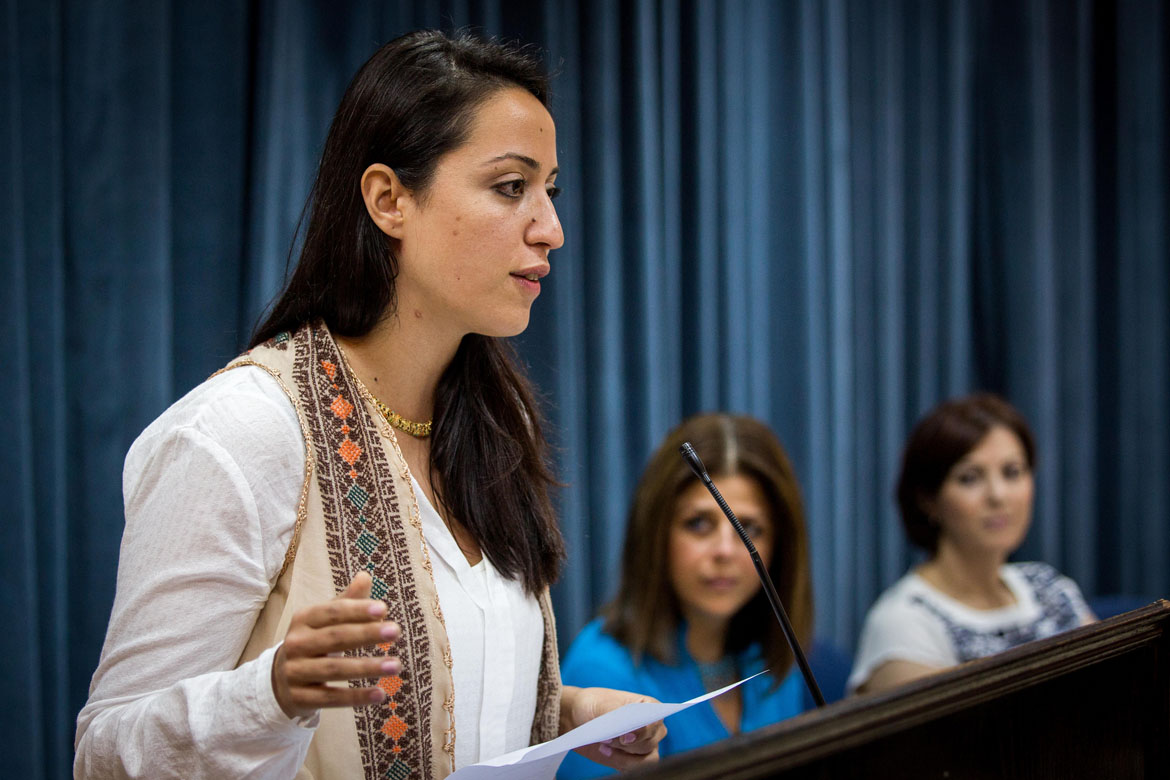www.aljazeerah.info
Opinion Editorials, August, 2016
Archives
Mission & Name
Conflict Terminology
Editorials
Gaza Holocaust
Gulf War
Isdood
Islam
News
News Photos
Opinion Editorials
US Foreign Policy (Dr. El-Najjar's Articles)
www.aljazeerah.info
I Remember My Name:
Poetry By Samah Sabawi, Ramzy Baroud, and Jehan Bseiso
Reviewed By Hatim Kanaaneh
Al-Jazeerah, CCUN, August 30, 2016
 |
 |
 |
| Ramzy Barood | Samah Saba'awi | Jehan Bseiso |
This is a review of a poetry collection, co-authored by three
Palestinian poets originally from Gaza, but the three of us now live in
exile.
It is reviewed by the respected Palestinian author Dr.
Hatim Kanaaneh.
The book is now shortlisted for the Palestine Book
Awards in London.
***
Through a Glass Darkly: A
Poetry Review - I Remember My Name
Reviewed by
Hatim Kanaaneh
(I
Remember My Name – Poetry by Samah Sabawi, Ramzy Baroud, and Jehan
Bseiso. Vacy Vlazna, ed., 2016, Novum Publishing. Kindle Edition.)
In penning this review, the primacy of Israel in North America’s hegemonic
cultural circles limits my expectation of a sympathetic Western
readership. The recent furor in Israeli government circles over the
public broadcasting of Mahmoud Darwish’s poem is only a warning
signal. Thugs and war criminals take on the mantel of literary critics to
attack Palestine’s national poet and ascribe to him their own internalized
fascist values. Judging from experience the malicious smear is bound to
gain traction in Zionist-aligned literary circles at home and abroad. Our
lead Palestinian politician in Israel, Ayman Odeh, explains well the
Israeli officials’ fear: “If we were to know and acknowledge each other’s
culture we may finally want to live together,” [al-Ittihad, July 21,
2016.]
I am an Israeli citizen and know firsthand how Israel’s
rightist leaders view the world. I know precisely where my place is in
their narrow field of vision. I experience daily how they deal with my
issues of the heart; such issues always fall outside the purview of the
Israeli majority’s definition of itself. Their politically inspired
national, religious and racial exclusionism debases what I and other
outfielders say. I live that reality and it strains my ability to reach
out to the world, to humanity as a whole. It threatens my poetic and
intellectual freedom. I worry that the pro-Israel hegemonic sway in
Western culture will affect a ‘security wall’ around my intellectual
property and that of other Palestinian writers and of kindred marginalized
groups. That, in turn, dims my hope to be understood by the world at large
and hence my worry.
The dedication of the current thin collection
of poetry by the three internationally savvy poets, Samah Sabawi, Ramzy
Baroud and Jehan Bseiso, to Gaza and Gazans blows their cover: They are
diaspora Palestinians, world citizens and enemies of hegemonic cultural
Zionism from within its field of operation; they are Trojan horses.
Between them they span the globe in poetic exile seeming to be in constant
flight from the inescapable curse of who they are, Palestinians by nature
and nurture.
The book is by four poets, not three, for I cried
just as much peering into the illustrations as I did reading the lines
that inspired them. The way David Borrington renders the feelings behind
the words of the poets in heartfelt visual images is a form of poetry as
well. How else can he show you again and again what it means to be
“anxious at the cellular level” for example?
Samah Sabawi admits
to using her “140 characters to liberate Palestine.” Within Israel lesser
thought crimes led to a pre-dawn police raid and landed the poet
Dareen Tatour first in jail and later in exile from home. The state
has deemed her too much a threat to have access to the Internet, or to be
free on her own recognizance till the formal court proceedings. But Samah
Sabawi, Ramzy Baroud and Jehan Bseiso all have escaped the geographic
confines of Palestine/Israel to their emotional and physical global exile.
Tethered by their heartstrings to their shared homeland and Gazan
suffering, all three transcend their Palestinian roots to a universal core
that snares readers everywhere. They soar across the globe to share in the
pain of others whether in Kashmir, South Africa, Chile, Burma or Mali.
Between the three of them our poets cover a wide span of the literary
field and the physical globe: There isn’t a continent or a writing art
they haven’t visited. Whether they cut their sentiments in stone or siphon
them from an ocean, the classic similes for the craft of Arabic poetry,
all three share the common demeanor coloring the lives of Palestinians
everywhere: They harbor a sense of injured pride at the deferred and
devalued, even if no longer totally denied, innate justice of their case,
the Palestinian Nakba. The hue each of them reflects of this shared,
heartfelt and pervasive Palestinian sentiment sets them apart from each
other. The editor tells us:
“Although Samah, Ramzy and Jehan have
distinctive styles, they possess in common incisive intellects, finely
tuned by a sense of justice inherent in the Palestinian experience and in
their love for Palestine particularly besieged and suffering Gaza.”
All three poets harbor a deep sense of history, of time and place that
always translates to Palestine. I have travelled and met many fellow
Palestinians in their diaspora. The phenomenon of Nakba-centered existence
is near universal among us. Like a hereditary trait it spans generations
and transcends time and space, it colors a Palestinian’s existence
wherever he/she treads and whatever air he/she breathes. Take Samah for
example: She smiles at us brightly from the first page of her
contribution. There is no mistaking her striking Greek (or is it Spanish,
Italian, Mexican, Native American or South-East Asian) looks. Speaking for
her fellow Palestinian poets, her words live up to the global sentiment
her looks spark:
“I am a Palestinian-Canadian-Australian writer,
commentator and playwright. ... I travelled the world and lived in
its far corners, yet always felt haunted by the violence and injustice
perpetrated against the poor, the marginalized, the colonized and
stateless. No matter where I was, or how vast the world appeared around
me, I always felt as though I remained trapped in my place of birth Gaza.
The war torn besieged and isolated strip shaped my understanding of my
identity and my humanity.”
Ramzy concurs:
“Wherever I am in the world, from Seattle to Chile to South Africa
and regardless of which struggle I am involved in, from Mali to the
Rohingya, I am always thinking Palestine, even when I am not conscious of
it.
“So, don’t talk to me about the Pharaoh:
My Father’s blood
drenched the skin of Jesus
After the Romans caught him at a checkpoint
Hiding a recipe for revolution, and a love poem”
And here
is Jehan Bseiso:
“Since 2008 I have been working with
Médecins Sans Frontières - Doctors Without Borders. My work has taken me
to countries like Afghanistan, Pakistan, Iraq, Ethiopia and others. In all
my travels and encounters, I’ve experienced how support and understanding
of the Palestinian cause can cross borders and traverse barriers of
culture and language.”
The with-it modernity of the three exiled
Palestinian poets is such that it makes it possible to include such
scribbles as “@ CNN@ Foxnews” meaningfully in a poem. Yet on the first
reading, it is only at the very end that the picture becomes stunningly
clear, explained in a single exclamation “Hashtag Gaza.” This gives the
entire collection its full clarity: Samah floats on an ethereal atmosphere
focusing on Gaza willingly or against her will, Ramzy fills every
internationally significant calamity with his remembered Gazan content and
Jehan experiences everything firsthand as #Gaza.
“How
[else] can we remember what we can’t forget?”
Aversion to
hyperbole limits one’s choices for comparison. Still, Gaza’s reality is of
the same genre as the Holocaust or Hiroshima. Except that Gaza’s plight is
stretched out over decades with the perpetrators’ skilled consistency and
aggressive projection of inner violence on its victim so artfully that
violence becomes the norm for Gaza if not for the whole of Palestine. The
‘international community’ is numbed into accepting the buzz of its drones,
helicopters and F-16s as part of the standard background noise and its
fireworks as another light show to observe and to report on occasionally
to fill the bulk requirements of international dailies.
“Counting
lashes is unlike receiving them,” a Palestinian saying goes. The
Palestinian experience, especially in Gaza, not only of suffering but also
of being ignored, shunned and ridiculed for incurring such punishment is
extremely private. It is so private and foreign it is difficult to
communicate to others. The basic elements of their private world are so
harshly incomprehensible that even when you scream them at ‘normal people’
you do it out of despair knowing that such reality is unexplainable, that
only living such reality permits one to understand it.
Hence, and
logically, some of the language is so unusual as poetry that it rubs
against the grain. And yet, there is an amateurish freshness to the raw
rub and the sanguinity of it all. It is so painfully touching it sinks and
sticks to the depth of the heart:
“Habeebi, I thought you lost my
number, turns out you lost your legs.”
How else can one perceive such
nightmarish reality as:
“In the hospital, they put the pregnant women
alone, because they’re carrying hope, because they don’t want them to see
what can happen to children.
… There’s more blood than water today in
Gaza.”
- Dr.
Hatim Kanaaneh is the author of Chief Complaint as well as A Doctor in
Galilee: The Life and Struggle of a Palestinian in Israel (Pluto Press,
2008).
Share the link of this article with your facebook friends
|
|
|
|
||
|
||||||


